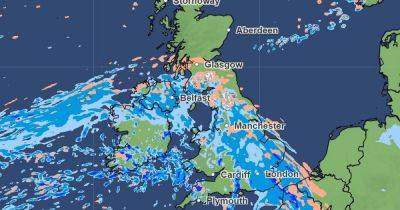Storm Eowyn put to shame as astronomers discover ‘extreme’ 20,000mph winds on planet 500 light years on Earth
As the UK prepares to be hit by what could be the worst storm of the season so far, powerful winds over the Atlantic have reached extreme speeds of 250mph.
In a distant world, astronomers have recorded record-shattering winds of 20,000 mph (32,000 km/hr) on a planet outside our solar system.
The exoplanet, a gas giant called WASP-127b that sits around 500 light years from Earth, has what scientists call “extreme supersonic winds,” which make up the fastest jetstream of its kind ever measured on a planet.
Jet streams are fast flowing currents of air. On Earth, the jetstream is a band of strong winds around 30,000ft above the Earth’s surface.
In the UK, the Met Office has issued a rare red ‘danger to life’ weather alert as the country prepares to be hit by Storm Eowyn. This storm is caused by a jetstream that blows from west to east, pushing storms across the Atlantic.
Storm Eowyn will bring gusts of up to 90mph, but the exoplanet in question experiences wind more than 200 times stronger than this.
The fastest winds in our solar system are on Neptune, which move at around 1,100 miles mph (1,800 km/hr).
WASP-127b, first discovered in 2016, has winds that move nearly six times faster than the planet rotates.
The planet is slightly larger than Jupiter, but has only a fraction of its mass, making it "puffy" – an apt description for this gusty world.
"Part of the atmosphere of this planet is moving towards us at a high velocity while another part is moving away from us at the same speed," says Lisa Nortmann, a scientist at the University of Göttingen, Germany, and lead author of the study.
"This signal shows us that there is a very fast, supersonic, jet wind around the planet's equator."
The team used European Southern








